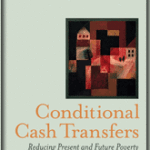 Markets work great, if the goal is to
Markets work great, if the goal is to
1. Maximize total output;
2. Encourage innovation;
3. Reward maximum effort;
4. Reward talent; and
5. Use resources most efficiently.
As a result, limiting markets tends to impair one of more of the above, valuable, outcomes. Also, non-market solutions to problems often produce sub-optimal results in one or more of the above areas.
Markets work poorly, however, if the goal is to
1. Make sure that the maximized output gets distributed equitably, or justly.
What I mean by that is that while some people control hundreds, thousands, or millions of times more resources than other people, its hard to argue from an equity, or justice, standpoint that some people are hundreds, or thousands, or millions of times more ‘worthy’ of the world’s resources than others. Especially if you include in your analysis of the efficacy of markets the estimated 870 million people on this planet in poverty, at the lowest end of resources, without basic survival necessities such as food, water, and shelter, sanitation, or protection from destructive elements.
Markets also work poorly to
2. Overcome inter-generational barriers to human development over long periods of time, where the upfront costs only get paid out over, for example, decades. For those aforementioned 870 million people in poverty, for example, its not enough to just say “let the markets be free,” because that’s not likely to help. The real long-term solution of human development for the most impoverished requires the investment of extraordinary resources today, right now, in order to make it possible to lift the next generation (or more distant generations) up to a standard at which a market economy even has a chance of working, through such things as education, skills training, and connection to productive economic networks. That extended ‘payoff’ over decades basically doesn’t work for markets or capitalists. I mean that markets don’t invest well in communities to achieve a return on human capital 50 years from now, even though realistically, that is what is needed.
I’m thinking about all of this after reading a review in The Economist about experiments with transfer payments, especially for the word’s poorest.
Discussing ‘transfer payments’ in the United States often degrades quickly into political name calling, with pro-market folks mistrustful of social democratic or socialistic approaches to alleviating inequality. Outside of the US – or more specifically in areas of extreme poverty – it becomes perhaps easier to discuss the efficacy and theory of transfer payments. Clearly a ‘market solution’ is not happening right away in situations of extreme poverty, or fast enough to alleviate clear human suffering, so a taboo solution like ‘transfer payments’ in some contexts (the developed world) becomes easier to discuss, I think, across a broader spectrum of ideologies, for basic practical reasons. People are dying and suffering right now, so in a sense we can leave aside the ideology and theory, and try to discuss what works.
Cash Transfers
The Economist ran this interesting review last year of programs known as Unconditional Cash Transfers (UCT).
UCTs are typically philanthropic programs that drop unexpected money on very needy people – a rural villager in Kenya identified by a Google satellite image by his lack of electricity in one example, with the hope that even small amounts of money can catalyze higher standards of living and human development in very efficient ways. Targeted UCTs may seek out mothers in a certain region, with the credible theory that mothers can best decide how to feed, clothe, and educate their children, if they only had a boost in resources to do so.
UCTs contrast with a more conventional development model of Conditional Cash Transfers. CCTs typically seek to influence and incentivize behaviors, around vaccinations, or education, for example. If the children attend school, the parent receives cash, for example
The UCTs provide a tantalizing alternative to the paternalism of CCTs, by requiring less resources to administer and enforce. Imposing conditions means the philanthropy or government behind the transfer has to build a structure of monitorig compliance with its rules.
So far, The Economist reports, the CCTs show more effectiveness at addressing the root causes of poverty. Still, the rise of UCTs will bring in more data over time to continue the comparisons. Even though these fall firmly in the ‘non-market solution’ category, the competition between the styles should lead to improvemnent.
Post read (2857) times.




